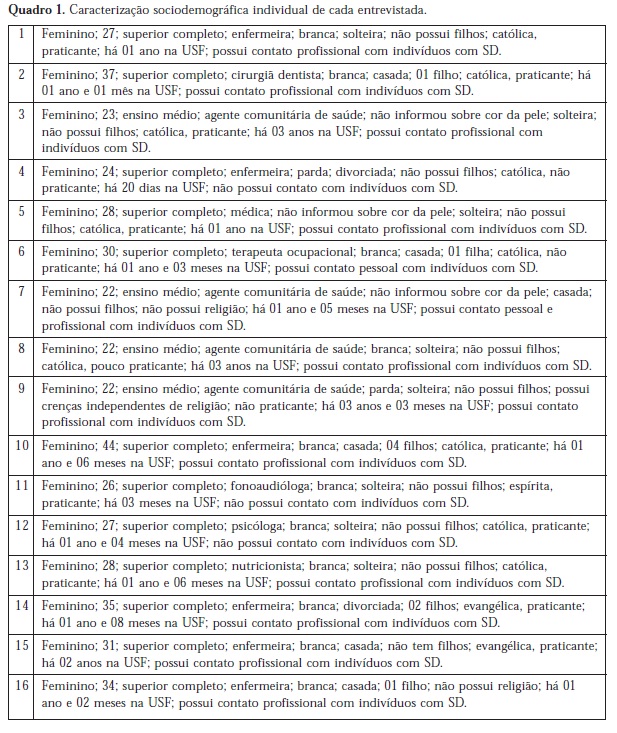The national policy of comprehensive care in clinical genetics propounds that families and individuals with genetic disorders should receive ongoing assistance at primary health care (PHC) level. In this study, the social representation of professionals working in family health care units (FHCU) is investigated based on their "bond" with Down syndrome patients, bearing in mind that this expression currently contains relevant meanings in the clinical practice and service management routine. Sixteen practitioners were interviewed, and the sample was defined by theoretical saturation. The statements given by the participants expressed knowledge based mainly on affective skills, physical proximity and patients' frequency of attendance at the family health care unit (FHCU). Clinical skills of other kinds, especially cognitive skills, do not appear to justify the notion of "bond." The results indicate the need of continuous professional education and definition of guidelines and approaches in care to the most common syndromes in the context of primary health care (PHC).
Bond; Down syndrome; Primary health care; Professional-patient relations; Social psychology




